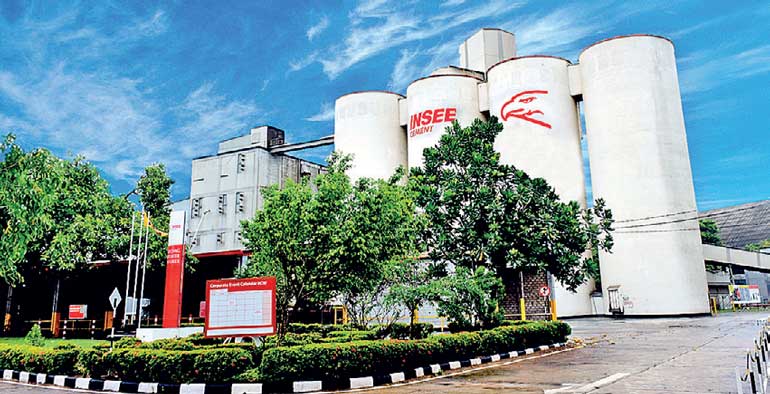Wednesday Feb 25, 2026
Wednesday Feb 25, 2026
Tuesday, 12 July 2022 00:55 - - {{hitsCtrl.values.hits}}

INSEE Cement has extended production of its Portland Composite Cement to its Ruhunu cement plant, increasing production of the new SLS 1697 product to meet the growing demand of the local market. Portland Composite Cement (PCC) is the result of years of research, and is a superior blended cement produced exclusively at the Puttalam integrated cement manufacturing facility earlier, to address the high carbon footprint of OPC cements, while also producing compressive strength equal to or beyond that of OPC at all ages.
“INSEE Cement introduced Portland Composite Cement for the first time to the local market last year as part of a two-pronged approach; to create value for our customers by augmenting the sustainability performance in their constructions, and also to steer Sri Lanka’s construction industry towards ambitious, globally benchmarked sustainable goals,” INSEE Cement Head of Products and Solutions Portfolio Dr. Moussa Baalbaki stated.
“Globally, the use of composite cements from residential and commercial to large-scale infrastructure projects have demonstrated long-term performance enhancements and have contributed to reduce the carbon footprint in construction. We are truly encouraged by the growing demand across the local market for Portland Composite Cement and trust our production expansion to Galle is testimony to our commitment towards sustainable production practices,” he added.
Engineered with INSEE’s trademarked SmartAct Technology, Portland Composite Cements unique composition of multiple minerals addition undergoes a triple reaction consisting of hydration, pozzolanic and nucleation that increases strength build-up at each level of maturity. The triple reaction also ensures optimum particle distribution and high packing density, resulting in lower permeability and durability of concrete suitable for all severe exposure conditions across Sri Lanka, especially coastal regions.
With the use of multiple silico-aluminates minerals such as slag and fly ash, Portland Composite Cement contributes to reduce carbon emissions both in production and construction practices, also making it a more environmentally friendly product than OPC.